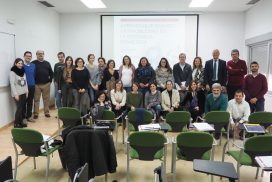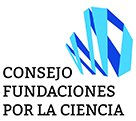The Spanish Society of Pharmacology will hold its 34th congress from September 16th to 19th, 2013 in San Pedro del Pinatar (Murcia) and the Esteve Foundation will attend the event for the third time. Firstly, at the conference the Foundation will launch a new Esteve Foundation Notebook, Problem-based learning and their texts: Examples of use in biomedicine. It will be presented on September 19th during the session on the Future of teaching in Pharmacology, chaired by Jose Pavia, Department of Pharmacology and Pediatrics at the University of Malaga.
Complementing the Notebook on Learning and Teaching in Medicine, with a series of articles published in the British Medical Journal on how to teach and learn in medicine, this new publication regards problem-based learning, the basis for this teaching methodology and many examples of real texts which help students obtain knowledge themselves. It has been edited by Mar Carrió, Luis Branda and Josep-Eladi Baños, the latter being responsible for presenting the book in San Pedro del Pinatar.
The Esteve Foundation will also participate in the congress of the Spanish Society of Pharmacology with two other contributions. Firstly, Elisabet Serés and Felix Bosch, from the Foundation, will discuss the difficulty of obtaining reprint permissions for academic use with the poster Pharmacotherapy Revisited. A series illustrating some of the difficulties of scientific dissemination, based on the experience of the Esteve Foundation in obtaining permissions to reproduce in facsimile the key items pharmacology of this series of notebooks.
Secondly, Laura García Martín, from the Esteve Foundation, and Alba Navarro, Josep-Eladi Baños and Fèlix Bosch, from the Department of Experimental Sciences and Health at the University Pompeu Fabra, presented in another communication the results of a survey that summarizes the experience of ten-years of research in pharmaceutical and biotechnology at the University Pompeu Fabra. A total of 65% of students who participated in this study now work in the sector and 25% are performing undergraduate or graduate studies, demonstrating the applicability of this educational program.











